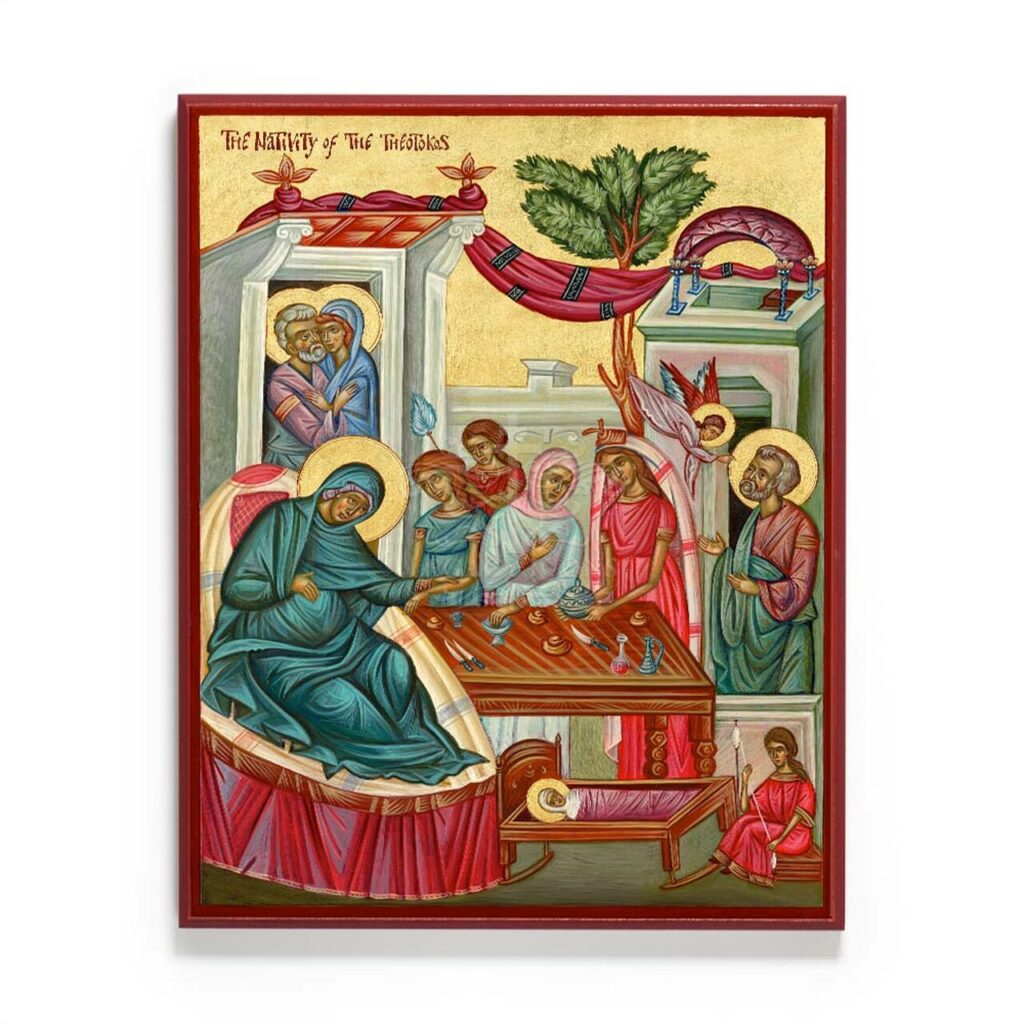In the Name of the Father, and of the Son, and of the Holy Spirit, One God, Amen.
“I am mistreated,” I tell myself, “others do not treat me with the respect I deserve.” And I carry on my life with this attitude. I hear today’s Gospel and I identify with the second servant who owed just a little: “others come to me and try to exact all they can out of me.”

My dear brothers and sisters in Christ, these are lies, because the only character in today’s Gospel with whom I share any resemblance is the first servant. We, you and I, have been forgiven a vast amount by the Lord—our debt has been written off, we are free. You and I are each offered our citizenship in the Kingdom of God, and even more, we are invited to co-reign with Christ: yet how tempting is it, once freed from our debt, to go and claim what is owed to us? How easy is it merely to hear the Gospel of the Kingdom? Hear it yet not act it? God offers us the Kingdom, yet we are interested in chasing after dust.
Forgiveness is at the heart of the Christian Gospel, it is an act completely against the culture in which we live, yet the Lord tells us,
For if you forgive men their trespasses, your heavenly Father will also forgive you. But if you do not forgive men their trespasses, neither will your Father forgive your trespasses.
Matthew 6:14–5
The Lord’s Prayer, which is so easy to say mechanically but has this in a more stark fashion, “And forgive us our trespasses, as we forgive those who trespass against us.” In other words, as much as we forgive the person who has wronged us the most, God will forgive us the same amount.
Why is this so? Is this a morally good thing, though difficult, we must do to appease God? No! Certainly not! It is so we can be free: until we forgive we are held in bonds by that person, we have entered again into slavery. Until we forgive that person holds power over us—controls us in a sense—and we have lost our own strength: we are no longer free and, therefore, become less like God. So to forgive is not to make the other person better, it is to restore myself as an heir of the Kingdom of God.
My dear brothers and sisters, forgive me. Forgive one another. Forgive those who wrong you. Not because they need it but because you do—to become whole, to become complete, to become a Christian.
That we may be worthy bearers of the image and likeness of our forgiving God and offer praise, honour and worship to him, Father, Son and Holy Spirit, Amen.
The Lord said this parable: “The kingdom of heaven may be compared to a king who wished to settle accounts with his servants. When he began the reckoning, one was brought to him who owed him ten thousand talents; and as he could not pay, his lord ordered him to be sold, with his wife and children and all that he had, and payment to be made. So the servant fell on his knees, imploring him, ‘Lord, have patience with me, and I will pay you everything.’ And out of pity for him the lord of that servant released him and forgave him the debt. But that same servant, as he went out, came upon one of his fellow servants who owed him a hundred denarii; and seizing him by the throat he said, ‘Pay what you owe.’ So his fellow servant fell down and besought him, ‘Have patience with me, and I will pay you.’ He refused and went and put him in prison till he should pay the debt. When his fellow servants saw what had taken place, they were greatly distressed, and they went and reported to their lord all that had taken place. Then his lord summoned him and said to him, ‘You wicked servant! I forgave you all that debt because you besought me; and should not you have had mercy on your fellow servant, as I had mercy on you?’ And in anger his lord delivered him to the torturers, till he should pay all his debt. So also my heavenly Father will do to every one of you, if you do not forgive your brother from your heart.”
— Matthew 18:23–35
